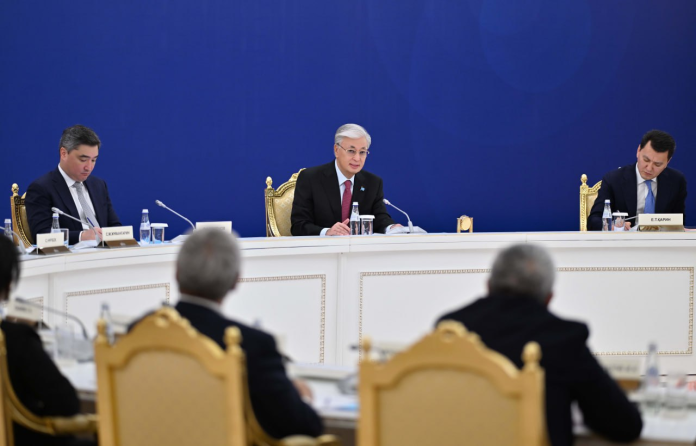Almaty: President Kassym-Jomart Tokayev underscored the strategic importance of science, technology, and nuclear energy for Kazakhstan’s long-term growth during a meeting of the National Council on Science and Technology on Thursday.
Opening the session, Tokayev said global challenges make scientific and technological capacity the key measure of a nation’s strength. He announced that starting next year, 20 annual quotas will be allocated for training nuclear specialists, stressing the need to develop human capital and create better conditions for young scientists.
As per the Astana Times, The President pointed to the recently adopted Law on Science and Technology Policy as a step toward protecting researchers’ interests and establishing a modern governance framework.
On energy security, Tokayev described nuclear power as “an extremely important and necessary” resource for the country’s future. He said Kazakhstan would prioritise national interests in negotiations on constructing a nuclear power plant and emphasized the domestic use of uranium, which has traditionally been an export commodity.
Tokayev also outlined plans to expand nuclear medicine, tasking the government with developing radiopharmaceuticals and building a network of medical centres to improve cancer and cardiovascular treatment.
Digitalisation and artificial intelligence were identified as central to Kazakhstan’s modernisation strategy, with the President noting that advanced digital solutions can enhance the efficiency and safety of nuclear facilities. He highlighted his recent meetings with technology leaders such as Amazon and Meta in the United States.
President Tokayev highlighted that nuclear energy development has become a global trend and an essential factor for national progress.
“Today there are 416 nuclear reactors operating around the world. The United States runs 94 reactors but produces insufficient uranium, and Kazakhstan supplies 24% of the fuel to its market. A similar situation exists in France, where more than 50 stations rely on uranium mined in our country,” he said.
Citing Kazakhstan’s role as a leading uranium supplier, Tokayev stressed the need to boost international cooperation in nuclear research, including fusion and radiation technologies. Such participation, he said, would attract investment and technological expertise.
Concluding his remarks, Tokayev called for greater public engagement to address nuclear scepticism and uphold environmental standards, urging scientists to inspire younger generations and contribute to national progress.
“Our main task is to improve the well-being of our people and strengthen the country’s competitiveness,” he said. “The scientific community will play a decisive role in achieving this goal.”




